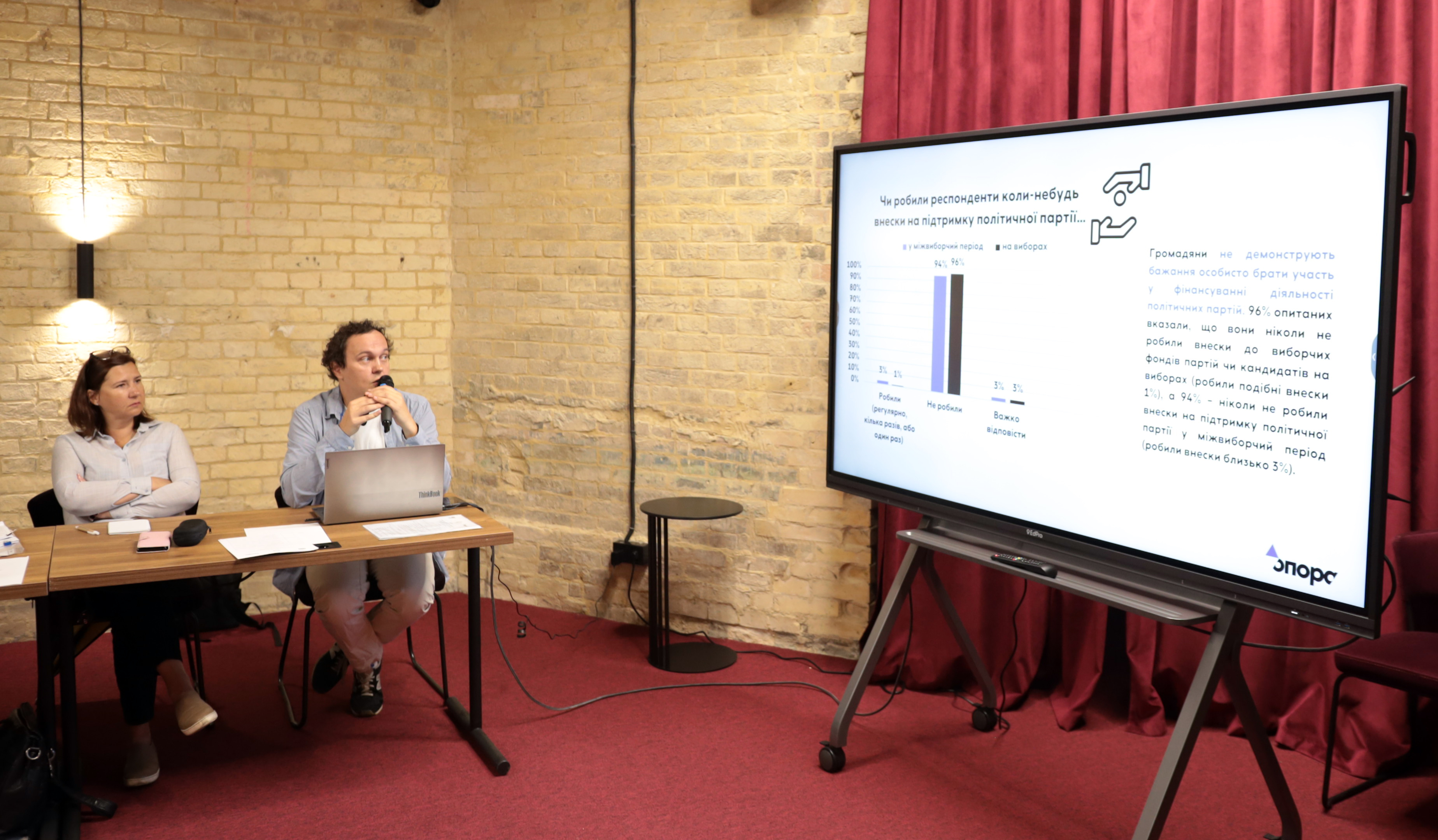Ukrainian citizens do not show a desire to personally participate in financing the activities of political parties and have no plans to do so.
This is evidenced by the results of a survey commissioned by the Civil Network OPORA, which were presented on July 30 during a discussion on recommendations for changes to legislation regarding responsibility for violations of political financing rules.
According to the survey, 96% of respondents indicated that they had never contributed to the electoral funds of parties or candidates during elections (only 1% had made such contributions), and 94% had never made contributions to support a political party between elections (about 3% had).
There is no reason to expect increased public activity in financing existing political parties or politicians, even those whose political positions are shared by the citizens. Only 3% of respondents with such sympathies indicated that they plan (or believe it is right) to fund the corresponding political party or candidate, while 89% do not have such plans.
According to the respondents, political parties should finance themselves. Specifically, 38% of those surveyed believe that political parties and candidates should pay for their campaigning using party members' funds, 14% believe that party leaders should provide the funding, and 11% support financing by those who sympathize with the parties and candidates or by wealthy individuals. Meanwhile, only 7% of respondents supported the idea of providing funds from the state budget.
Half of those surveyed were undecided about whether total annual contributions to political parties or candidates should be limited to a specific amount, and 18% did not see the need for introducing such restrictions. Only 29% of respondents supported the legislative limitation of political financing.
The field stage of the research, in the form of a survey, was conducted by the sociological service of the Razumkov Center from March 21 to 27, 2024, commissioned by the Civil Network OPORA as part of the project “Ensuring the Inevitability of Punishment and Preventing Violations of Political Financing Rules," supported by the International Foundation for Electoral Systems (IFES) and UK aid from the Government of the United Kingdom. The face-to-face survey was conducted in the Vinnytsia, Volyn, Dnipropetrovsk, Zhytomyr, Zakarpattia, Zaporizhzhia, Ivano-Frankivsk, Kyiv, Kirovohrad, Lviv, Mykolaiv, Odesa, Poltava, Rivne, Sumy, Ternopil, Kharkiv, Kherson, Khmelnytskyi, Cherkasy, Chernihiv, and Chernivtsi regions, and in the city of Kyiv (in the Zaporizhzhia, Mykolaiv, Kharkiv, and Kherson regions — only in the areas controlled by the Ukrainian government and where no hostilities are taking place).
A total of 2020 respondents aged 18 and older were interviewed. The theoretical sampling error does not exceed 2.3%. At the same time, additional systematic deviations in the sample may be due to the consequences of Russian aggression, particularly the forced evacuation of millions of citizens.
RESEARCH: Financing of Political Parties and Political Corruption Practices in Ukraine
